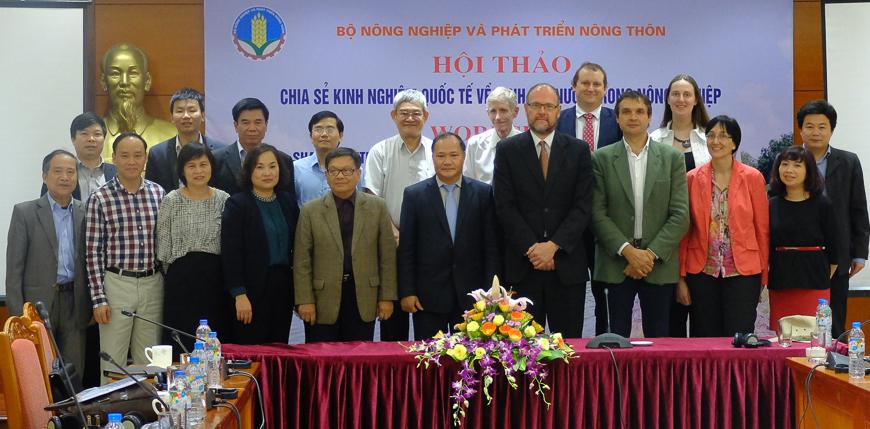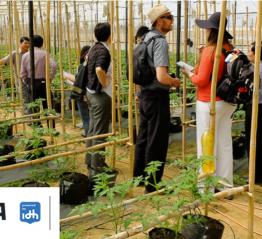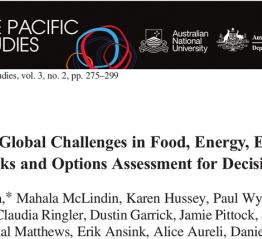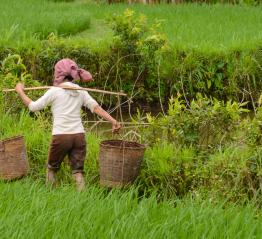On 6 April 2016, the FE2W Network worked with the Initiative for Sustainable Landscapes in Vietnam (ISLA Vietnam) – a program of IDH, the Sustainable Trade Initiative, the Directorate of Water Resources, and the Institute of Policy and Strategy for Agriculture and Rural Development to convene a workshop on “International Experiences of Agricultural Water Pricing” at the Ministry of Agriculture and Rural Development (MARD) in Hanoi.
The workshop was chaired by MARD Vice-Minister Hoang Van Thang and attended by leading researchers and officials from Vietnam and senior IDH Vietnam staff, Dr Flavio Corsin and Ms Tran Thi Quynh Chi. Professor Quentin Grafton (Australian National University), Dr Claudia Ringler (International Food Policy Research Institute) and Dr Dennis Wichelns (Stockholm Environment Institute) provided presentations on agricultural water service pricing and public-private partnership for investment in irrigation management. The presenters highlighted key lessons from international experience, including:
- Water service pricing creates incentives to use water efficiently and sustainably manage water resources.
- Irrigation service fees (ISFs) can generate revenue, but are not always effective in motivating improvements in farm-level water management because water demand is often highly price inelastic.
- Generally, more than one policy tool is needed to achieve more than one policy goal.
- Farmers have most at stake in any PPP in irrigation engagement—the 2 Ps should never forget this.
- The reason for the PPP needs to be clear – what objectives does the public sector have with PPPs?
Workshop participants from Vietnam highlighted the following points:
- The current status of irrigation service fees (ISFs) in Vietnam is unsustainable.
- Since 2007, the government pays ISFs directly to state-owned irrigation management companies (IMCs).
- This policy has placed IMCs on a more sound footing, but at the cost of: (i) large and rising state expenditure, (ii) reduced incentive for farmers to conserve water and, (iii) crowding out of private investment in irrigation.
- Water pricing is only part of the solution.
- The existence of a middleman for collecting irrigation service fees from farmers is a key issue.
- Water management needs to address both supply and demand.
- Farmers’ over-use water because they have no incentive for conservation.
- There is a need to address macro issues, such as crop priorities at the national level (i.e. moving away from prioritizing rice), in order to formulate the details of water pricing.
- In the past, there was a focus on water supply management only but water demand is also needed.
- Key to improved water resources management is the development of market-based mechanisms and the treatment of water as a commodity.
Vice-Minister Hoang Van Thang concluded the workshop by stating that irrigation service pricing reform needs to be a key priority and new policies must include safeguards for farmers. Vice-Minister Thang indicated that DWR would work with IDH to develop a Task Force on water service pricing comprised of experts of Vietnamese and international experts.
More information about IDH’s ISLA program can be found here: http://www.landscapesinitiative.com/
Media reports on the event can be accessed here:
http://hanoitimes.com.vn/economy/agriculture/2016/04/81e0a1a7/agricultur...
http://en.vietnamplus.vn/water-supply-to-shift-from-subsidised-to-market...





